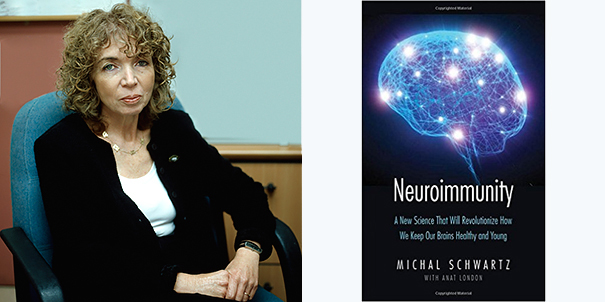
September 21st is World Alzheimer’s Day – and, not coincidentally, the release date for Prof. Michal Schwartz’s new book. Published by Yale University Press, Neuroimmunity: A New Science That Will Revolutionize How We Keep Our Bodies Healthy and Young not only presents her game-changing work on the immune system’s connection to the brain, but brings to life her extraordinary journey as a woman in science.
Scientists long believed that there was no communication between the brain and the immune system; in fact, it was thought that any infiltration of immune cells into the brain was a major threat to our health. Based on this assumption, the standard treatment for inflammation associated with neurodegenerative diseases, such as Alzheimer’s, was to totally suppress the body’s immune system.
Prof. Schwartz turned this theory on its head by proving that the immune system and the brain do “speak” to each other – and that, in fact, neurodegenerative diseases are the result of a communication breakdown between the brain and the immune system. Instead of suppressing the immune system, she argues that the most effective way to treat Alzheimer’s and other chronic neurodegenerative diseases is to do the opposite: boosting targeted immune cells in the brain. She developed an immune-based therapy that, when given to mice with Alzheimer’s, actually eliminated the brain plaques associated with the disease – and even restored cognitive abilities. She and her team are now working on a vaccination for slowing the brain’s aging process in humans.
Prof. Schwartz’s lay-friendly book tells the story of a woman fighting an uphill battle for acceptance, while proposing views that the scientific community found radical – and making the discoveries that could change the way we view aging and how we treat Alzheimer’s, Parkinson’s, ALS (amyotrophic lateral sclerosis, or Lou Gehrig’s disease), and other neurodegenerative conditions. As Yale University Press says, “all readers with an interest in brain function and its relationship to the immune system in health and disease will find this book a valuable resource.”
